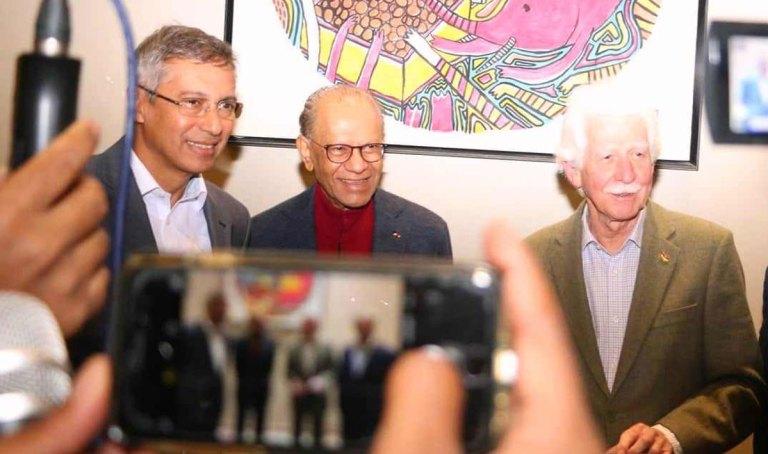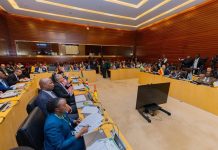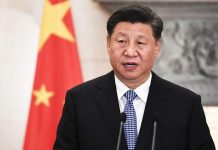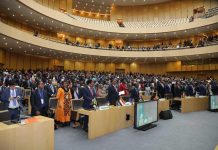Africa-Press – Mauritius. The tripartite meeting of leaders of the Labor Party, MMM and PMSD, held on Saturday July 24, to discuss the political and economic situation in the country and to find a common platform for the parliamentary opposition is undoubtedly a significant event on the political chessboard.
Is it historic? Everything will depend on the future development of relations between the three parties, in Parliament and elsewhere, and what this brings in terms of common actions at the political, parliamentary and legal levels.
For the first time, the meeting was one as it brought together the three leaders around a common agenda. Never before have the three parties met to tune their violins, agree on the diagnosis of the situation in the country and consider prospects for joint action.
In the past, there have been alliances between the MMM and the Ptr (1995-1997), between the PMSD and the Ptr (2005-2014), and between the MMM and the PMSD (brief alliance with the late Hervé Duval) to contest elections or govern together.
A Ptr-MMM-PMSD alliance would be historic if it were to materialize by the next municipal elections (2021) or general elections (2024). Inevitable bipolarization
Such an alliance, which already brings together 63% of voters who voted against the MSM-ML-MP in the last elections, would be a formidable opponent to the ruling parties.
The electoral system, which allowed ruling parties to come to power with 37% of the vote but with a relative majority of seats, is not conducive to a three-way fight, as seen in the 2019 elections. This iniquitous system imposes political bipolarization between two opposing camps.
The opposition parties are well aware of the political risks of a dispersion of forces vis-à-vis the ruling parties, which do not skimp on the means to weaken the democratic opposition and to muzzle civil society.
The first tripartite meeting seems to bode well for the future of inter-party relations. It will be followed by tripartite meetings every two weeks in order to coordinate actions and speeches.
In the meantime, teams of young people from each party will meet to plan a coordinated action on social networks, which certainly influence the youth connected to digital platforms.
There is obviously a will to make common cause, whether it is tactical to counter an all-powerful government or strategic to dislodge it from power in the long term.
Apparently, the ruling parties’ move to incriminate the leader of the MMM in the Saint-Louis Gate affair was part of a strategy to isolate the MMM within the opposition and promote the recomposition of a blue-orange alliance.
-red (like the blue-white-red alliance which reigned from 1983 to 1991). The PMSD was said to be uncomfortable in the opposition after the 2019 election.
However, it seems that this strategy did not have the desired effect because the leaders of the Ptr, the MMM and the PMSD have closed ranks. against their common adversary. Four reasons for collaboration
Essentially, the three leaders gave four reasons to justify the regrouping of the opposition parties in order to better collaborate in Parliament first and then to extend this agreement on the ground.
They are : (a) the anti-democratic excesses of the regime; (b) contesting the last elections to the Supreme Court; (c) the many financial scandals in these times of economic austerity; and
(d) the regime’s diversionary strategy by appealing to sectarian instincts. When it comes to democracy, it is clear that the regime is increasingly showing an intolerance of criticism.
Parliament does not function as it should with the frequent expulsions of opposition MPs, caused by their reactions to provocations from the majority side or certain interventions by the Speaker.
The opposition considers itself violated in its rights, evidenced by the refusal of parliamentary questions deemed embarrassing and the limitation of speaking time on bills.
The opposition’s exasperation is such that it has introduced a censure motion against the Speaker, which in fact is being debated at undue hours. It goes without saying that the rules of impartiality and mutual respect are not scrupulously observed there. Anti-democratic drifts Apart from the National Assembly, critics of the government are not treated any better.
Civil society is subject to various pressures with the arrest of too reckless Internet users, the summons before disciplinary committees of intellectuals who dare to speak freely, the transfer of officials considered to be whistleblowers in financial scandals and the dismissal of too demanding trade unionists in the public sector.
The freedom-killing laws passed in the wake of the pandemic aim to muzzle public opinion as much as possible. The opposition is convinced that all public institutions, except the DPP and the judiciary, are instrumentalised for political ends.
As evidenced by the appointment of a former politician to replace a scientist at the head of the Mauritius Standards Bureau and that of a head of a socio-cultural association to chair an institution that is supposedly secular (Council of Museums).
While the ICT Act is invoked to challenge Internet users -suspects of lack of reserve, a proposed amendment to the Penal Code aims to criminalize any offense of information or any offense of opinion about Mauritian sovereignty over the territories of Mauritius.
.
No debate would therefore be possible on the Chagos (subject of litigation with Great Britain with Chagoissiens installed in London in the English camp), Rodrigues (where some want more autonomy) and even Agaléga (where the presence of the Indians makes the difference.
object of dispute on the part of some). Election petitions Another concern of opposition parties is the contestation of the 2019 elections in some constituencies.
Ideally, election petitions should have been debated in court within a reasonable time (30 days), but defendants’ alleged delaying tactics have delayed court hearings for 9 months.
Elsewhere in Africa, notably Malawi, the Supreme Court took up election petitions very soon after the last election and delivered its verdict. It just goes to show that we have to learn from our African peers in terms of governance.
Financial scandals Financial scandals follow one another at a breakneck pace. One scandal drives out the other. There were huge losses at SBM due to bad debts (unsecured loan given to Indian businessman).
Air Mauritius has made a financial crash with its heavy debts. The Saint-Louis Gate exposed corrupt practices around the allocation of a CEB contract.
STC and the Ministry of Commerce and Health are embroiled in a controversy over the allocation of contracts for the supply of medical products and equipment for Rs 1.5 billion without a call for tenders.
In all of these cases, the government either refuses a commission of inquiry or hides behind an alleged ICAC investigation to refuse to answer questions in parliament. The ICAC’s outbursts with searches and seizures of the computers of the accused parties do not impress much. Ethnicization of issues
Overwhelmed by criticism from the opposition and questions from civil society about bad governance practices, the regime tries to create fear by arresting or intimidating its critics.
In addition to these tactics, there is a recourse to a campaign of diversion based on the ethnicization of certain issues (the problem of squatters, police brutality during confinement).
Sectarian attacks against some politicians accused of the crime of lèse-majesté (alleged “India-bashing” concerning imported drugs) or of colonial mentality are treacherous.
Mauritius aims to be modernist, but politicians, old and young, cannot help but invoke the skin of their opponent as soon as they are cornered. This is how much politics has not changed in 50 years of independence. Some remain trapped in the straitjacket of prejudices inherited from another age.
The most optimistic believe that the communalization of the stakes is a cyclical tactic (the end justifying the means) which will not call into question the balance of society, but it opens wounds that have not been healed very well.
It exploits latent fault lines in a multi-cultural society that does not need social divides in these difficult times. The four reasons given for the unification of the opposition forces undoubtedly reflect the fundamental concerns of a large part of the population.
Some idealists will dismiss the regime and the opposition back to back because they are disillusioned by an incorrigible political system. Cynics will say that all politicians are the same. Everyone has their turn to eat, they say.
Given the constraints of the political system (method of election by First Past The Post, hidden party funding, dominance of the major parties, state apparatus in the service of power, MBC propagandist), an opposition alliance is not the only valid alternative to authoritarianism?
For More News And Analysis About Mauritius Follow Africa-Press







